Featured Webinars
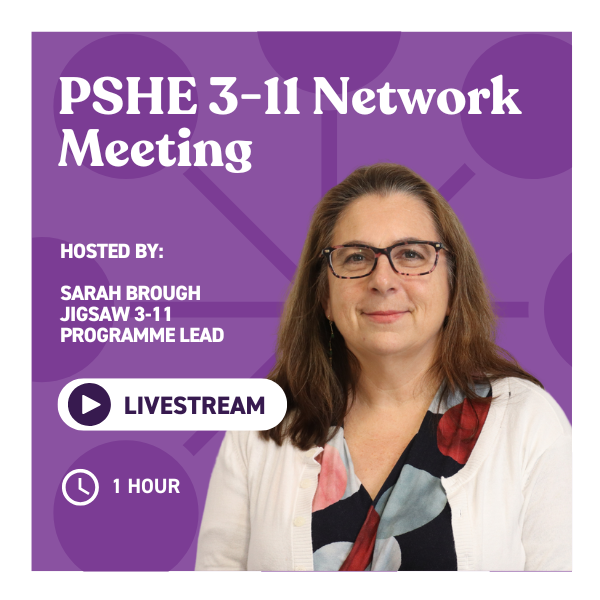
Join us for a reflective, power-packed session led by Sarah Brough as we reflect on the real impact of Jigsaw PSHE in your schools.
What’s in store:
Share inspiring stories of student engagement and improved wellbeing outcomes
Celebrate achievements and discuss measurable outcomes from your Jigsaw implementation
Explore how the programme has transformed teaching and learning experiences for both staff and pupils
Hear updates from Jigsaw on new developments and resources
Connect with fellow educators to showcase the real-world difference Jigsaw is making across our network schools
Whether you’re bursting with stories or just fancy being inspired—this is your space. Open to all Jigsaw PSHE users, UK and international. Let’s celebrate what works.
01/07/2025 15:30
Register
Maximise your pupils’ understanding of the RE curriculum through a multi-disciplinary approach. We will define the disciplinary lenses of theology, philosophy and human/social sciences and exploring ways to introduce these to children.
30/06/2025 12:00

An estimated 55,000 young people in the UK have a gambling problem, with 85,000 more at risk.
Join Carole Phillips, Jigsaw Curriculum Lead, as she explores the online gaming world, its links to gambling, and how to spot signs of excessive use. Learn how to support young people, build resilience, and use Jigsaw PSHE resources to address these issues.
We'll cover:
Gaming trends and PEGI ratings
Addictive features and warning signs
Gambling risks on- and offline
Where to find help and support
A must-attend for anyone working with or caring for young people.
23/06/2025
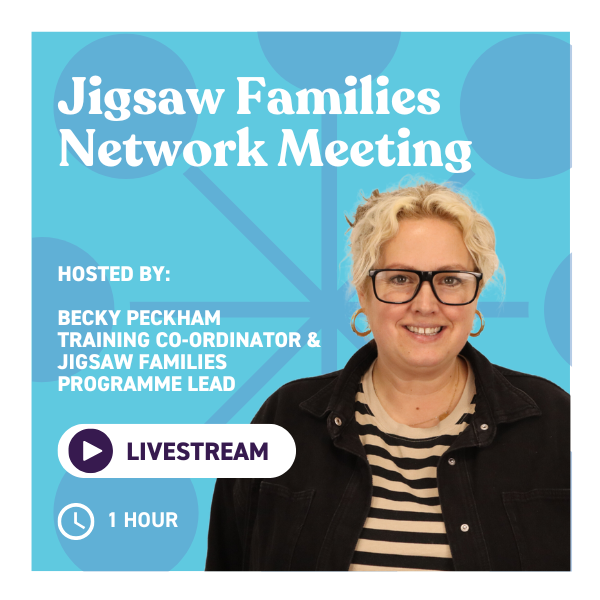
Open to all schools that use Jigsaw families. Share ideas and experiences with other schools, find out new updates on Jigsaw Families, explore ideas to assess impact, and listen and talk to others to gain ideas and tips from the community.
17/06/2025 16:00
Access OnDemand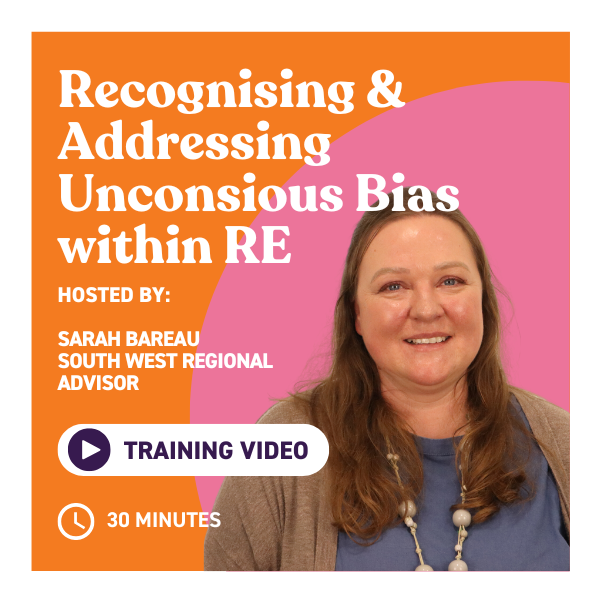
Explore how a high-quality RE curriculum can be part of the process to address unconscious biases.
Learn what we mean by the term unconscious bias and its relevance to the RE curriculum, share ideas about how to address unconscious bias through teaching and resources, and get hold of a reading list to dive deeper into this area and suggestions for books promoting diversity suitable for pupils from EYFS to KS3.
12/06/2025 12:00
Access OnDemand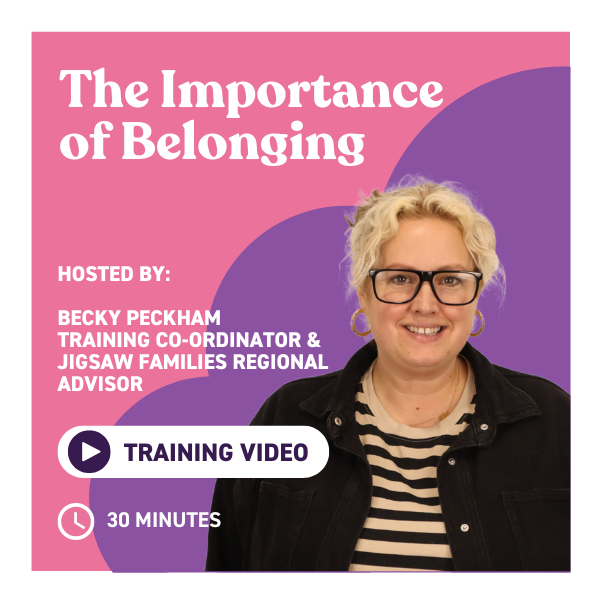
Every child deserves to feel they truly belong at school—but too many still feel excluded. Join experienced primary teacher and PSHE lead Becky Peckham for this essential webinar on building a culture of belonging.
We’ll explore:
The psychology of belonging and its impact on learning
Practical strategies for inclusion and connection
Whole-school approaches to support every student
Ideal for teachers, leaders, and support staff—walk away with real tools to make every pupil feel seen, supported, and valued.
09/06/2025
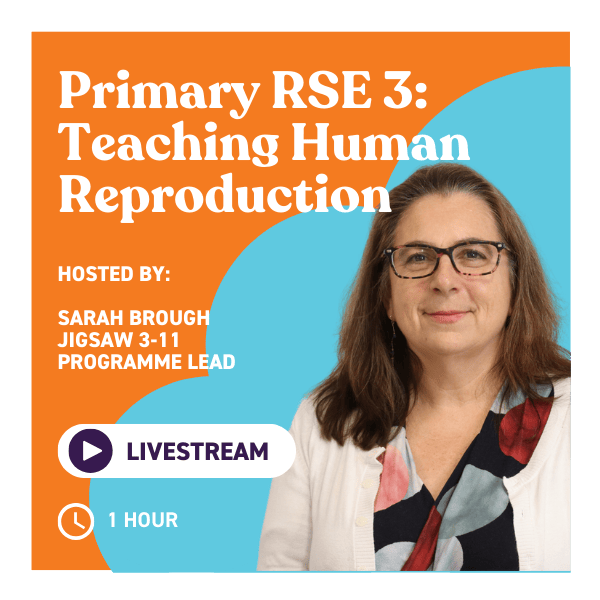
This webinar offers clear guidance on Jigsaw’s approach to teaching reproduction, including where the content sits within the programme and how to use the supporting materials effectively.
It provides practical strategies to build staff confidence, engage parents and carers positively, and foster a supportive whole-school ethos around this important aspect of the curriculum.
07/05/2025 16:00
Access OnDemand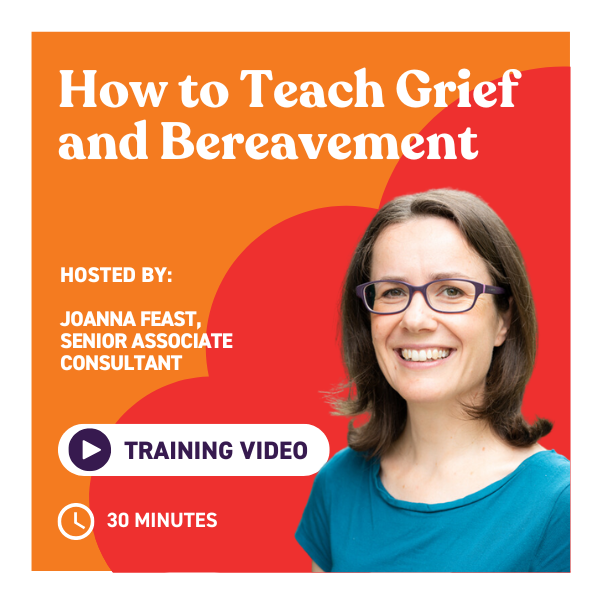
Learn how to contextualise grief and bereavement teaching in an age- and stage- appropriate way, and how grief may be expressed by children and young people of different age groups and how we might be able to support bereaved pupils and staff in school.
05/05/2025
Access OnDemand
Learn how to support young people to understand their current and ongoing fertility, helping them to make informed choices, and give young people the confidence and understanding to choose their own path to parenthood if and when it is right for them.
01/05/2025 12:00
Access OnDemand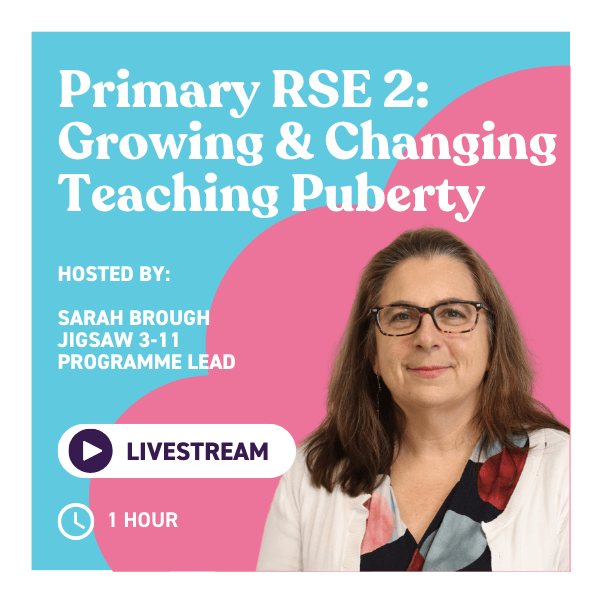
This session guides teachers through Jigsaw’s puberty education resources, showing where the content sits within the programme and how to use support materials to boost teaching confidence.
It also offers practical tips for adapting lessons to suit your pupils and strategies for developing a whole-school approach to puberty education.
30/04/2025 16:00
Access OnDemand
Gain up-to-date information on contraceptive choices, and learn how to encourage young people to develop the social and communication skills needed to discuss and manage contraception (and possibly STIs) within a relationship, and discuss when this kind of learning becomes age appropriate.
30/04/2025
Access OnDemand
Learn why we need to deliver high quality relationships and sex ed in schools and what should and shouldn’t be included in these lessons. We will also highlight where these lessons are, and how they are structured so that students can incorporate their learning into their own current or future relationships.
24/04/2025
Access OnDemand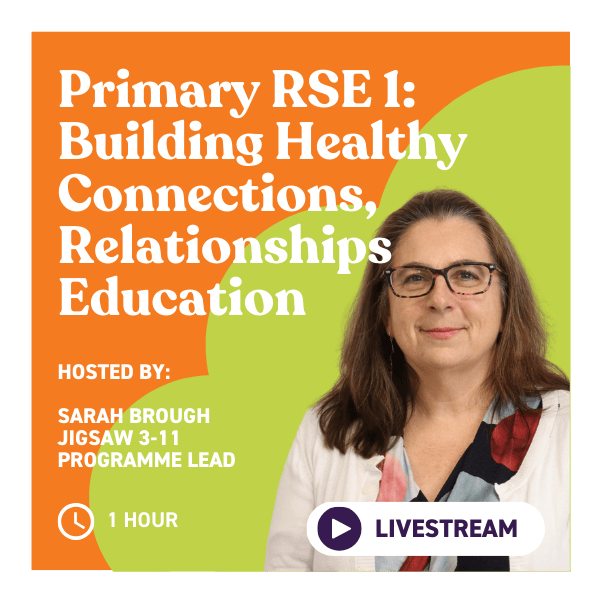
Teachers will learn where to find key relationship materials across the Jigsaw Puzzles and year groups, along with examples of lessons that develop understanding from self-awareness to wider community connections. They will explore ways to share these approaches with colleagues, strategies for building whole-school consistency in teaching relationship concepts, and effective methods for communicating the Jigsaw relationships approach to parents and carers.
23/04/2025 16:00
Access OnDemand
This webinar is designed to help teachers strengthen their own understanding of the menstrual cycle by giving a comprehensive overview of how the cycle of hormones influences body systems such as the reproductive system and the central nervous system.
This will help teachers deliver lessons to young people in a way that addresses the physical need for and management of the menstrual cycle, and crucially help students understand how thoughts and feelings can change throughout a menstrual cycle.
21/04/2025
Access OnDemand
This webinar introduces the Baháʼí worldview. Programme Leads, Hannah Coldwell and David Rees explain some of the key beliefs, practices and people of this worldview, as well as unpicking common misconceptions.
The webinar also includes some common topics covered when teaching the Baháʼí worldview in the classroom and showcases resources to support this.
Attendees will also receive a PDF document outlining the main information covered, which can be used to support wider staff subject knowledge.
03/04/2025 16:00
Access OnDemand
This free training video with Heather Hansen, our Welsh RVE Advisor, aims to provide support for all Primary RVE teachers. The session will look at the statutory documents and what support is available for guiding and teaching RVE. It will give practical ideas about how to implement a strong RVE policy and deliver high-quality RVE in your school. There will also be a chance for a Q&A session with Heather. This session aims to empower teachers to review their RVE provision and be more confident in how to deliver RVE going forward.
02/04/2025 12:00
Access OnDemand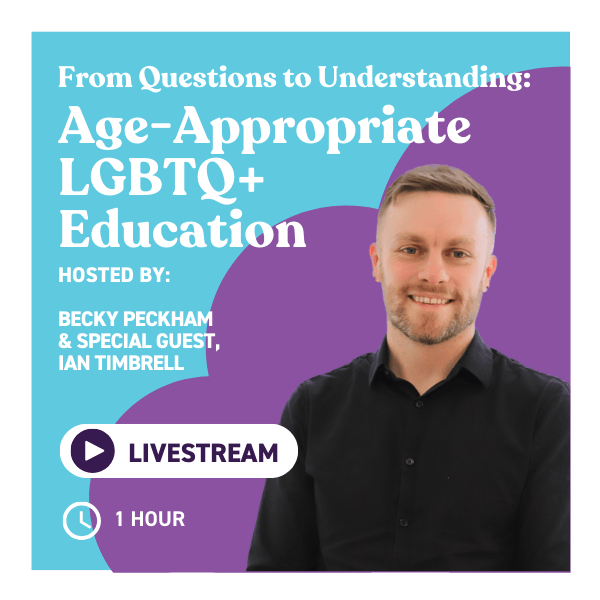
We’ll cover how to decide what language should be taught and when, and how to answer those tricky questions with ease, ensuring your lessons are both informative and respectful.
01/04/2025 16:00
Access OnDemand
Why does sustainability belong in Religious Education? The session provides a fascinating insight into beliefs and practices of nine worldviews related to the important topic of sustainability.
31/03/2025 12:00
Access OnDemand
This webinar introduces the Ethical Vegan worldview. Regional advisors Celina Sullivan, Nicola Archer and Geraldine Yates explain some of the key beliefs, practices and people of this worldview, as well as unpicking common misconceptions.
The webinar also includes some common topics covered when teaching the Ethical Vegan worldview in the classroom and showcases resources to support this.
20/03/2025
Access OnDemand
Liggy Webb will be drawing on her wide expertise to share practical ways for teachers to to deal with stress and to manage or improve work life balance. She will guide us through some new strategies to manage our own stress in a positive light.
Liggy Webb is an award winning and bestselling author, presenter and international consultant specialising in mental health and well being.
18/03/2025 16:00
Access OnDemand
Discover how PSHE is an ideal place to teach about sustainability because it positions it not just as an environmental issue, but as one deeply connected to personal wellbeing, social justice, personal choices and economic systems. Find out ways to weave activities into your PSHE curriculum.
17/03/2025 12:00
Access OnDemand
This webinar introduces the Sanatana Dharma (Hindu) worldview. Regional advisors Celina Sullivan and Laura Gregory-White explain some of the key beliefs, practices and people of this worldview, as well as unpicking common misconceptions.
The webinar also includes some common topics covered when teaching the Santana Dharma worldview in the classroom and showcases resources to support this.
Attendees will also receive a PDF document outlining the main information covered, which can be used to support wider staff subject knowledge.
13/03/2025 16:00
Access OnDemand
Ensure your PSHE provision is high quality and sustainable, learn how to identify any provision gaps and how to fill them. The evidence base for PSHE is compelling and this session ensures staff feel equipped to facilitate best practice in every Jigsaw PSHE learning opportunity.
10/03/2025 12:00

This webinar introduces the Humanist worldview. Regional Advisors Sarah Bareau and Nicola Archer explain some of the key beliefs, people and dates as well as unpicking common misconceptions. The webinar also includes key themes to facilitate exploring the Humanist worldview in the classroom and signposts resources to help with this.
Attendees will also receive a PDF document outlining the main points covered, which can be used to support wider staff subject knowledge.
06/03/2025 16:00
Access OnDemand
This webinar introduces the Buddhism worldview. RE advisors David Rees and Nicola Archer explain some of the key beliefs, practices and people of this worldview, as well as unpicking common misconceptions.
The webinar also includes some common topics covered when teaching the Buddhist worldview in the classroom and showcases resources to support this.
Attendees will also receive a PDF document outlining the main information covered, which can be used to support wider staff subject knowledge.
13/02/2025 16:00
Access OnDemand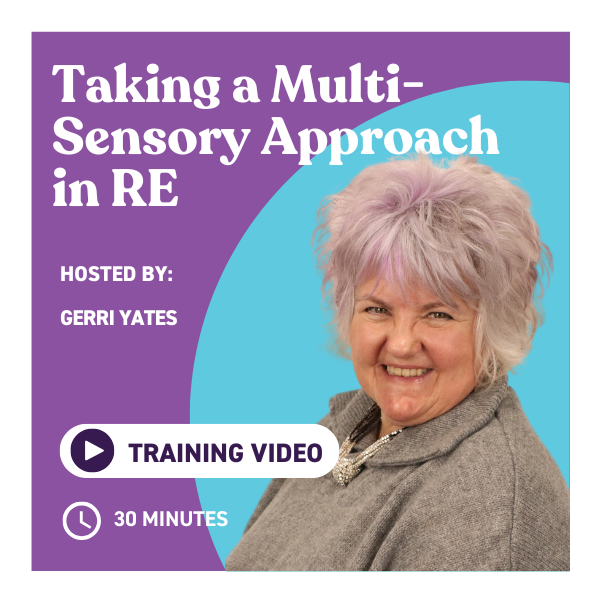
Discover more about the multi-sensory approach, the research findings that advocate for this approach, its benefits to all children, particularly those children with SEND. Learn how to enhance some of our Jigsaw enquiries with multi-sensory experiences, which you can transfer to your classroom.
10/02/2025 12:00
Access OnDemand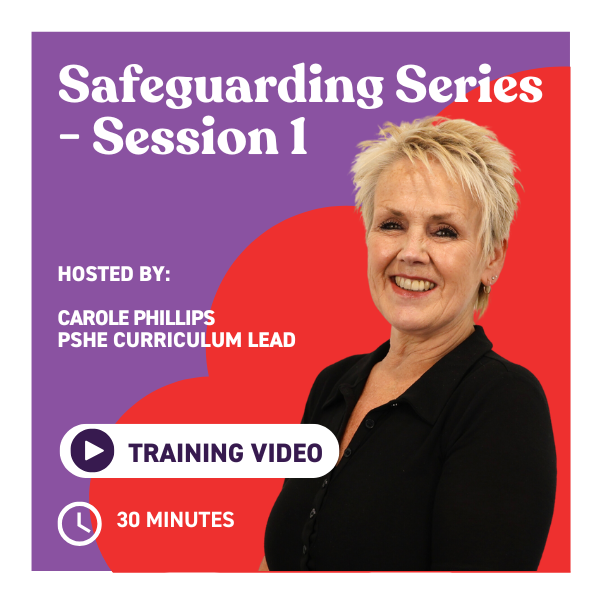
Carole has worked for nearly 30 years in the field of online safety as safeguarding lead in secondary schools and charities. This webinar explores the apps children and young people use and why age restrictions and data protection are so important in safeguarding them when using social media platforms. Curriculum Lead Carole Phillips will also cover areas such as location settings, where to access reporting mechanisms on social media platforms, and safeguarding policies content, as well as sharing practical tips for teachers, parents and carers.
05/02/2025 12:00
Access OnDemand
Join this webinar to explore the Jewish worldview with Regional Advisors Geraldine Yates and Heather Hansen. Learn about key beliefs, practices, and figures while addressing common misconceptions. The session covers classroom topics and showcases resources to support teaching. Attendees will receive a PDF summarizing key information, designed to enhance staff subject knowledge.
30/01/2025 16:00
Access OnDemand
This webinar will explain some of the change that occur during the adolescent window of neurological development, highlight how these changes provide opportunities for learning, and can also present challenges socially, emotionally and in a classroom environment.
We will then discuss how to address these challenges and how some of the Jigsaw 11-16 resources are designed to be sensitive to the adolescent brain and help young people to enhance their social and emotional learning.
The webinar will be led by Rachel Carey – an experienced secondary teacher, PSHE leader with a deep understanding of adolescent neurological development.
27/01/2025 12:00
Access OnDemand
This webinar introduces the Islam worldview. Programme Lead, David Rees, explains some of the key beliefs, practices and people of this worldview, as well as unpicking common misconceptions.
The webinar also includes some common topics covered when teaching the Islam worldview in the classroom and showcases resources to support this.
Attendees will also receive a PDF document outlining the main information covered, which can be used to support wider staff subject knowledge.
23/01/2025 16:00
Access OnDemand
Explore the Christian worldview in this webinar with Regional Advisors Geraldine Yates and Heather Hansen. Discover key beliefs, practices, and figures while addressing common misconceptions. The session covers classroom topics and highlights resources to support teaching. Attendees will also receive a PDF summarizing key information to enhance staff subject knowledge.
21/01/2025 16:00
Access OnDemand
During the 'Substance Use and Misuse Education and creating a whole school policy' webinar we will cover the following;
1. The Importance of Substance Misuse Education
2. Effective and Ineffective Teaching Approaches
3. How does Jigsaw PSHE cover Substance Misuse Education?
4. Creating a whole school Substance Misuse Education policy
5. Signposting to supporting services
20/01/2025
Access OnDemand
This webinar introduces the Sikh worldview. Regional Advisors Sarah Bareau and Laura Gregory-White explain some of the key beliefs, practices and people of this worldview, as well as unpicking common misconceptions.
The webinar also includes some common topics covered when teaching the Sikh worldview in the classroom and showcases resources to support this.
Attendees will also receive a PDF document outlining the main information covered, which can be used to support wider staff subject knowledge.
16/01/2025 16:00
Access OnDemand
An opportunity to explore SEND understanding and practical strategies to ensure high-quality RE for all children in the mainstream classroom.
This webinar will cover:
· SEND Code of Practice and the four areas of need.
· Adaptive Teaching Vs Differentiation
· Practical strategies in the RE classroom
· Sensory RE
13/01/2025
Access OnDemand
An opportunity to explore SEND understanding and practical strategies to ensure high-quality PSHE for all children in the mainstream classroom.
This webinar will cover:
· SEND Code of Practice and the four areas of need
· Adaptive Teaching vs Differentiation
· Practical strategies in the PSHE classroom
· Contributions to key areas such as ‘Preparation for Adulthood’ goals
06/01/2025
Access OnDemand
This training session emphasises the value of sharing authentic lived experiences of different worldviews with your pupils. It includes practical tips and examples of good practice that can be applied whatever your school setting:
Helping you discover places of interest and school speakers in your local area
Exploring common barriers and ways to overcome them
Demonstrating the Crossing the Bridges resources to get the most out of your visit.
05/12/2024
Access OnDemand
Are you looking to enhance your use of Jigsaw RE in the EYFS? Join Laura Gregory-White, our regional advisor for the East and West Midlands for a webinar exploring how Jigsaw RE's framework aligns with EYFS principles to lay strong foundations for learning in Religious Education. Together, we’ll dive into how Jigsaw RE supports young learners, aligning with both statutory and non-statutory guidance, to support engaging, meaningful RE experiences.
02/12/2024
Access OnDemand
Providing governors with an overview of key SMSC information in primary schools, including RE and PSHE statutory requirements. This webinar will cover:
A whole-school approach to SMSC
Statutory requirements and best practices in RE and PSHE
Links to Ofsted framework judgments in ‘Quality of Education’ and ‘Personal Development’
28/11/2024
Access OnDemand
Adam Thomas, a Regional Lead Advisor for Jigsaw Education Group, brings first-hand experience on the transformative impact of physical activity on mental health. In the webinar, "The Positive Impacts Physical Activity Has on Your Mental Health," he will explore how exercise supports mental well-being, including reduced anxiety and depression, improved self-esteem, and better sleep. Participants will also learn about NHS guidelines and discover ways to begin their own physical activity journey as a mental health tool.
25/11/2024
Access OnDemand
Judy Allies, a former Biology and PSHE teacher with 15 years of experience, and Anya Finch from St Levan Primary School, will discuss delivering PSHE and RSHE in small and mixed-age schools. The webinar will explore Jigsaw's Composite Classes document and share practical examples for effectively teaching PSHE and RSHE.
18/11/2024
Access OnDemand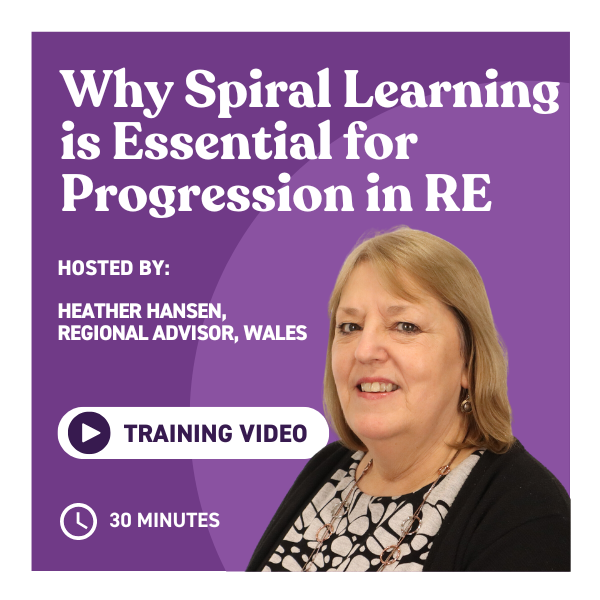
Join Heather Hansen, Regional Advisor for Jigsaw Education, with 39 years of teaching experience and 17 years as Head of Department, as she explores the importance of spiral learning in curriculum design for RE/RVE. This session will cover the need for depth over breadth, the benefits of a spiral curriculum in building knowledge, vocabulary, and critical thinking, and how this approach ensures pupil progression. Examples from Jigsaw RE’s enquiries and Jerome Bruner’s research will be discussed.
14/11/2024
Access OnDemand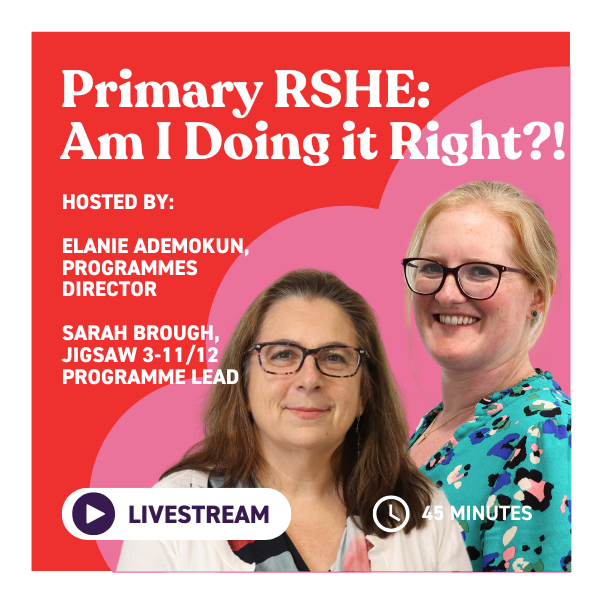
Join us for Primary RSHE – Am I doing it right?, a webinar hosted by Jigsaw’s Elanie Ademokun and Sarah Brough. We will cover the importance of RSHE, how to ensure compliance, handle challenging topics, engage parents, and measure your programme’s success. Get practical tips and insights to help you deliver impactful RSHE in your school, with a brief look at how Jigsaw PSHE can support you.
14/11/2024
Access OnDemand
With rising mental health concerns and shorter attention spans, this webinar explores how mindfulness can enhance classroom participation and well-being. Learn about mindfulness, its benefits, classroom applications, and how Jigsaw embeds mindfulness across its programs for a whole-school approach. Nicola has 27 years of primary teaching experience and still teaches two days a week. She has been an SLT member, whole school curriculum lead, and foundation subjects leader, as well as a qualified mindfulness teacher and Forest School leader.
11/11/2024
Access OnDemand
Children’s spoken language development is crucial to all seven areas of learning in the Early Years Foundation Stage. Strong language skills unlock other forms of learning and help children communicate their needs. However, one in four children, especially from deprived backgrounds, start school without these skills. At Jigsaw Education Group, we focus on building confidence and emotional vocabulary. This webinar explores how the outdoors can enhance physical, emotional, and communication skills, offering practical ideas for outdoor play and environment audits.
04/11/2024
Access OnDemand
At Jigsaw Education Group, the learning environment is central to our mission. Schools have a statutory responsibility to create spaces where children and young people feel supported, safe and welcome. The child is always at the core of what we do—their needs are our 'why'. A positive and purposeful learning environment not only boosts engagement and enjoyment but also enriches teaching and learning, directly impacting children's mental health and wellbeing.
21/10/2024
Access OnDemand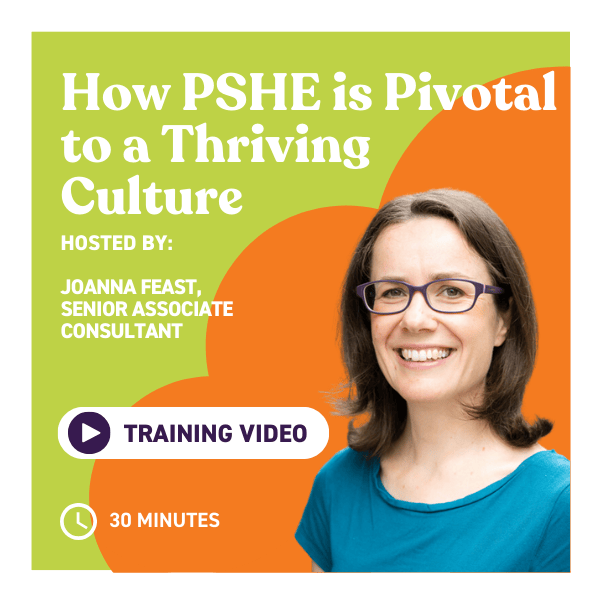
Joanna, a senior consultant with 25+ years' experience, will explore building a thriving school culture through PSHE pedagogy, inclusive values, personal development, and SMSC opportunities. She’ll provide practical tips on proactive safeguarding, effective leadership, and how Jigsaw PSHE fosters well-being, health, and inclusion in schools.
17/10/2024
Access OnDemand
Bethan, Programme Lead for Jigsaw PSHE 11-16, brings extensive secondary school experience. Join us to learn about exciting updates to the programme, including new content additions, CPD opportunities, and webinars. This session also offers networking opportunities for secondary schools, making it a valuable event for professional growth and programme insights.
14/10/2024
Access OnDemand
Join Laura Gregory-White and Sarah Bareau, with over 25 years of RE teaching experience, as they introduce the worldviews approach to Religious Education. Learn key terminology, explore essential features, and discover how to introduce, embed, and sustain this approach in your school for effective RE teaching. Don't miss this valuable session!
10/10/2024
Access OnDemand
Join Becky, our training coordinator and an experienced Primary school teacher of 18 years, as she shares her insights from using Jigsaw PSHE for a decade. Discover her top hints, tips, and non-negotiables for embedding Jigsaw PSHE and creating a whole school approach. Don’t miss out on her expert advice!
07/10/2024
Access OnDemand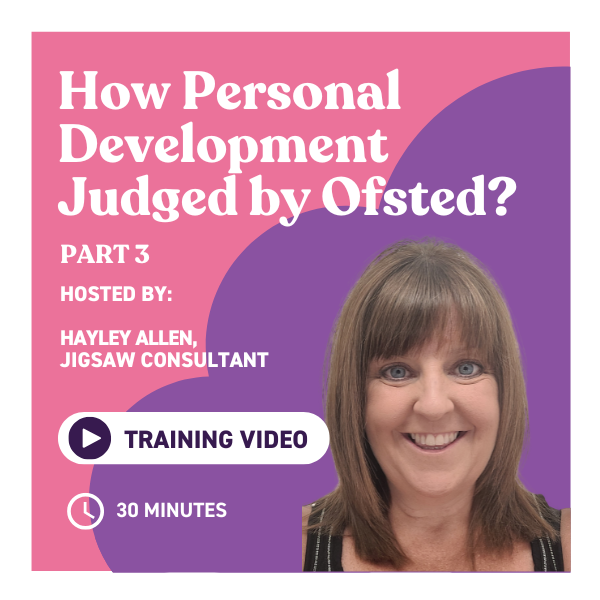
What to expect:
Support for you as a PSHE lead preparing for your personal development interview.
Signposting to useful Jigsaw materials.
Exploring questions that might be asked.
Gain hints and tips for quick wins.
13/09/2024
Access OnDemand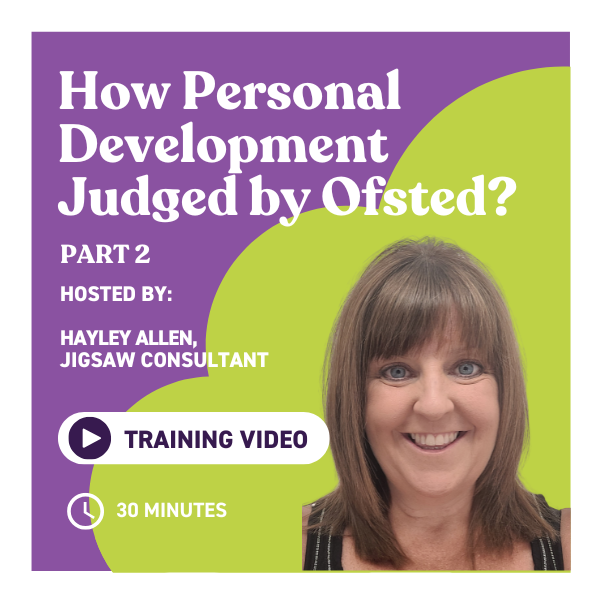
Learn how personal development is evaluated in Ofsted inspections. Understand personal development, PSHE’s role, and SMSC’s importance in school development. Explore RSHE teaching obligations and how the Jigsaw program meets them. Uncover key principles of personal development and their integration through Jigsaw PSHE 3-11.
11/09/2024
Access OnDemand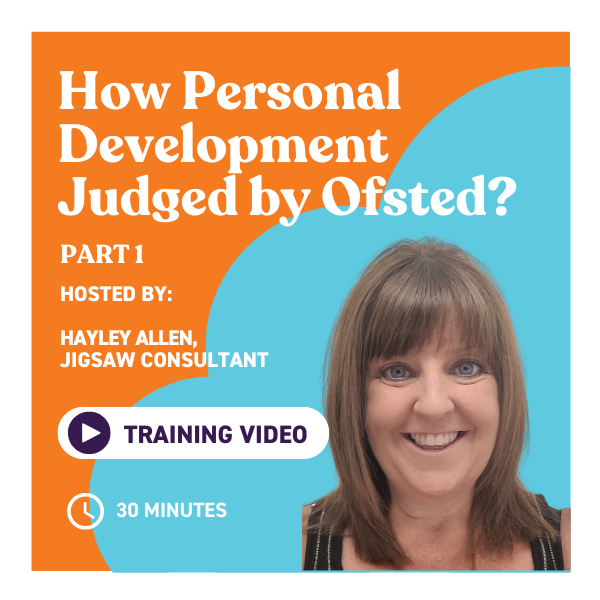
Learn how personal development is evaluated in Ofsted inspections. Understand personal development, PSHE’s role, and SMSC’s importance in school development. Explore RSHE teaching obligations and how the Jigsaw program meets them. Uncover key principles of personal development and their integration through Jigsaw PSHE 3-11.
01/09/2024
Access OnDemand
Join Simon White, Jigsaw consultant, in this informative webinar designed for new Headteachers at schools using Jigsaw RE. Get essential tips and a helpful takeaway document to support your leadership in delivering high-quality RE education.
27/08/2024
Access OnDemand
Join Simon White, Jigsaw consultant, in this insightful webinar for new Headteachers at schools using Jigsaw PSHE. Learn essential tips for your new role and receive a helpful takeaway document to guide your leadership in PSHE education.
27/08/2024
Access OnDemand